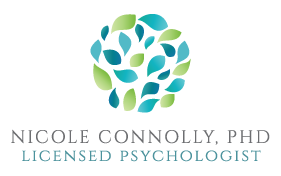What to Expect from Therapy in Santa Clarita
As anyone here in Santa Clarita can tell you, finding a therapist who seems like a good fit for you is the first part of the battle in improving your mental health. Once the appointment is made, a lot of folks start wondering what they should expect in the first appointment and beyond.
We know that the process of starting therapy can be really overwhelming! It’s a huge deal to take that first step and schedule an appointment. So, we wanted to try to remove some of the mystery of what will happen when you start therapy with us. Every therapist or psychologist will have their own way of doing things, but this is what we would like you to know about our practice.
Before the First Session
In a way, therapy begins even before you attend your first session. After you schedule an appointment with us, we will send you a bunch of forms to sign and questionnaires to complete. While it’s pretty tempting to just skim through and sign without reading, there is a lot of important information we want you to know.
The forms are one of the ways that we let you know about how the process will work. They cover things like what therapy is, what information is shared with others, and how our payment process works. These forms also allow us to collect some information about you in advance, so we can be more focused when we meet with you for the first time.
Because of this, it’s really helpful if you can complete all of our forms at least 24 hours before your scheduled appointment.
Your First Session
Your first therapy session with us will be kind of like an orientation to therapy. When you arrive for your very first session, whether it is in person or virtual, the first thing your therapist will do is review the paperwork and make sure that you understand all of the policies of our clinic. This is a great time to ask any questions you had as you were filling out the forms. We do have to take a few minutes to verbally verify that you understood what you read and that you are in agreement.
Once we get through all of the legal stuff, our first meeting will really focus on collecting a LOT of information. We will want to ask a lot of details about what symptoms you are experiencing, your background, and about things you’ve already tried to do. Sometimes it can take several sessions for us to get all of the information that we need. All of this information is really important for us to work on developing a plan for helping you with your unique situation.
We find that a lot of people are surprised by how uncomfortable or how emotional they feel during their first meeting with a therapist. It is really common to feel strong emotions or to cry, even during the first session. Talking can bring up strong emotions, especially if it’s something that has been building up for a while.
The assessment phase at the start of therapy can also feel a little stilted and awkward at first. Your therapist may ask a bunch of questions about various different topics and may take a lot of notes. Sometimes people want to jump right in to getting feedback or advice from their therapist from the first meeting. However, we want to really get to know you first before making a bunch of recommendations.
After the First Session
After we have finished our assessment, we will talk with you about our recommendations and a plan for addressing your concerns. The plan for what we will do in therapy will depend on your situation and what symptoms you are experiencing.
Therapy doesn’t just involve venting about a bunch of problems. We sometimes may ask you to practice certain techniques or do homework assignments between sessions. We may challenge you to think about your situation in new or different ways.
Our goal is to be transparent in our processes as much as we can. We encourage you to ask a lot of questions if you aren’t clear on what we are doing or why!
Therapy is very much a collaborative process between the client and the therapist. While we bring knowledge and expertise from years of education and working with other clients to your situation, you are ultimately the one who knows yourself best. Your feedback on what is working and what isn’t working can help us make the experience as valuable to you as possible.
We hope that this helps take some of the mystery out of the process of getting started with therapy. If you are ready to schedule your first appointment with one of our OCD and anxiety specialists, please Contact Us by phone (661-430-9300) or email (info@drnicoleconnolly.com) to discuss the next steps for you.

